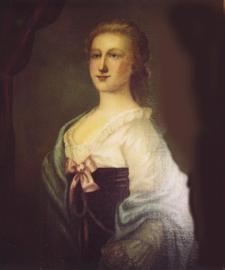1737-Births
Rebecca Brewton, daughter of Robert Brewton, was born at her father’s house, 21 Church Street. She married Jacob Motte and later lived in her brother’s house at 27 King Street and live there with the British occupying force in 1780.
1786-Natural Disasters
Fire swept down Broad Street, destroying fourteen buildings, including the state house.
1818-Slavery. Religion. Denmark Vesey Rebellion
In direct defiance of the City Council, Rev. Richard Allen (of Philadelpha) conducted a Sunday service in a private home for a blacks-only congregation. The city guard once again disrupted the service. Allen and his Philadelphia delegation were arrested and sentenced to “one month’s imprisonment, or to give security and leave the state.”
Allen and his group returned to Philadelphia under the threat of his arrest, but black religious services continued to be conducted in private homes at night, often conducted by Denmark Vesey. Gullah Jack, however, was angered by what he called “the desecration of sacred ground” (the disruption of religious services), and claimed he “wanted to begin” to organize against the whites.
1822-Denmark Vesey Rebellion
Watching the increased militia activity on the streets, and hearing of the arrests, Denmark Vesey and Monday Gell destroyed all incriminating letters and documents they had in their possession. Gullah Jack buried a small cache of gunpowder and weapons on the Buckley farm in the Charleston Neck. All three men then went into hiding.
 Gov. Bennett signed a General Order calling out Col. Croft’s 16th Regiment, the Washington Light Infantry, the Republican Artillery and the Charleston Neck Rangers. Bennett also requested the assistance of the federal government. He wrote to Secretary of War John C. Calhoun, a South Carolina native, about his “State of alarm and his inability to defend his city.” Bennett wrote that a show of federal force:
Gov. Bennett signed a General Order calling out Col. Croft’s 16th Regiment, the Washington Light Infantry, the Republican Artillery and the Charleston Neck Rangers. Bennett also requested the assistance of the federal government. He wrote to Secretary of War John C. Calhoun, a South Carolina native, about his “State of alarm and his inability to defend his city.” Bennett wrote that a show of federal force:
would tend not only to tranquilize the public mind, but produce the happiest effects upon that class of persons who have caused the present excitement.
1864-Bombardment of Charleston
Gen. Foster notified General Henry Halleck, Army Chief of Staff, that:
The fire upon the city of Charleston had been somewhat increased, and had been continued night and day, at irregular intervals, the number of shots varying from 30 to 60 in ordinary firing.

